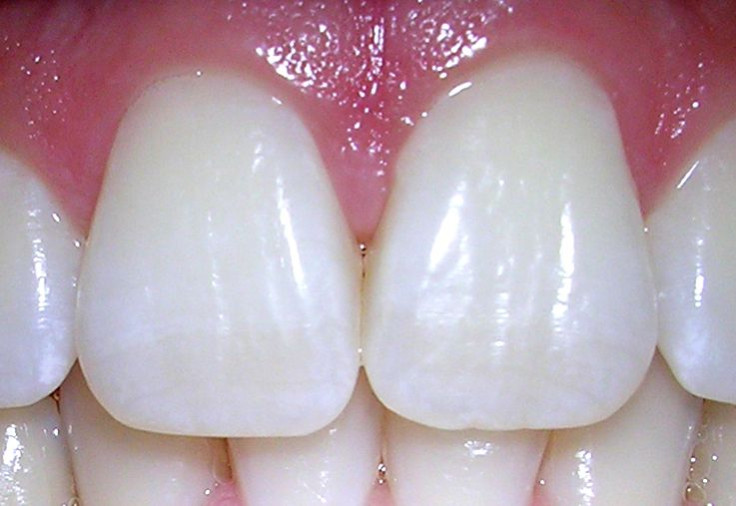Researchers May Have Developed a Way to Repair Sensitive Teeth

If you wince after having a spoonful of ice cream or a sip of coffee, you may have sensitive teeth, a problem that is believed to plague an estimated 3 in 4 people. The condition can cause sensitivity to hot, cold, sweet and sour drinks and foods. Despite its prevalence, there is no cure, though desensitizing toothpaste and some sugarless gums can ease symptoms. However, researchers at the University of Hong Kong and the Anhui Medical University in China may have found a way to reverse dental sensitivity - and the method is inspired by nature.
According to the American Dental Association, dental sensitivity can be caused by a number of factors, like aggressive tooth brushing, a cracked tooth and gum disease. The symptoms appear when the outer layer, enamel, and the softer inner layer, dentin, wear away, leaving the sensitive nerves exposed.
The researchers resolved to rebuild both enamel and dentin at the same time. To meet their goals, they turned to an adhesive similar the one used by mussels when sticking to objects. They theorized that the mixture could bind minerals with dentin long enough for the rebuilding process to truly take hold.
In the laboratory, the team bathed human teeth with worn-down enamel and dentin in a liquid that contained the sticky adhesive and minerals. Other damaged teeth were merely exposed to minerals. They found that, when teeth were exposed to both substances, they reformed both enamel and dentin. When exposed to just minerals, the teeth formed only dentin.
Researchers concluded in a statement that their findings "may be a simple universal technique to induce enamel and dentin remineralization simultaneously", and could turn a new chapter in the fight against sensitive teeth.
The study was published in the latest issue of the journal ACS Applied Materials and Interfaces.
Published by Medicaldaily.com



























